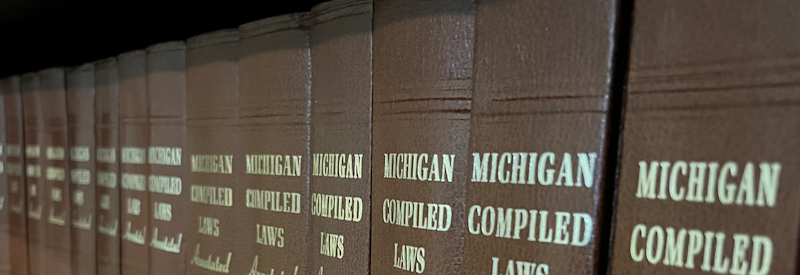Michigan Omnibus Forfeiture Act
Michigan's Omnibus Forfeiture Act specifically targets certain offenses and requires a conviction before forfeiture. The Michigan Omnibus Forfeiture Act is a legislative measure designed to address specific offenses, mandating a criminal conviction before asset forfeiture can occur. This requirement ensures that property seizure is directly tied to proven criminal activity. However, the Act also highlights the intricate balance prosecutors must maintain between pursuing justice and adhering to procedural deadlines.
The Wayne County Prosecutor’s Office underscores the importance of regular communication between prosecutors handling criminal cases and forfeiture attorneys, given the stringent time constraints imposed by the Act. Prosecutors are explicitly cautioned to consider how the resolution of a criminal case may impact a concurrent forfeiture case. A warning issued to prosecutors states that when negotiating case outcomes with assistant prosecuting attorneys or the Diversion Unit, they must avoid resolutions that fail to secure a conviction for crimes explicitly listed in the statute. This advice underscores the implicit financial motivations tied to asset forfeiture, as forfeited assets can contribute to funding law enforcement operations.
Under the Michigan Omnibus Forfeiture statute, two primary categories of property are targeted for forfeiture: the instrumentality of an offense (property used to commit a crime) and the proceeds of the offense (assets acquired through illegal activities). These can include both personal and real property, such as vehicles, homes, or land. While the Omnibus Act requires a post-conviction process, prosecutors often favor expedited pre-conviction forfeiture mechanisms available under other statutes. These alternative measures, however, are limited in scope, addressing specific areas like drug offenses, prostitution, and nuisance abatement.
One area of contention is the application of pre-adjudication asset seizures under drunk driving laws (MCL 257.625n). Critics argue that police and prosecutors unlawfully apply pre-conviction forfeiture practices in these cases, treating them as though the statute permits asset seizure before a formal conviction. This practice raises concerns about due process and the potential for abuse of forfeiture laws, highlighting the ongoing debate over the balance between law enforcement objectives and individual rights.
Qualifying Offenses under the Michigan Omnibus Forfeiture Act:
Accepting Bribe - Public Official
Arson - Insured Property
B & E Building
Bank Robbery
Bribery - Public Official (MCL 750.117 and 750.121)
Burglary w/ explosives
Child Sexually Abusive Activity
Computer Internet Crimes
Counterfeiting
Embezzlement
Extortion
False Pretenses
Fighting Animals
Financial Transaction Device - Forgery
Financial Transaction Device - Use or Sale
Forgery
Larceny
Larceny from a Person
Larceny in a Building
Possession Dangerous Weapon
Receiving or Concealing Stolen Property
Robbery Armed
Robbery Unarmed
Uttering & Publishing
The Michigan Omnibus Forfeiture Act:
Section 600.4701 Definitions.
Section 600.4702 Property subject to seizure and forfeiture; exception; encumbrances; substituted proceeds of crime.
Section 600.4703 Order of seizure; seizure without process; order authorizing filing of lien notice; return of property to victim; property in custody of seizing agency; powers of seizing agency; disposition of seized money; title to property subject to forfeiture.
Section 600.4703a Seizure of computer or computer information storage device; copy provided to court; retention as confidential record; computer and computer storage device defined.
Section 600.4704 Notice generally.
Section 600.4705 Motion to return property or discharge lien; grounds; hearing; burden of proof; order; filing lien against vehicle and returning vehicle to owner; admissibility of testimony in criminal prosecution.
Section 600.4706 Return of personal property to owner; discharge of lien against real property or motor vehicle; time limitation.
Section 600.4706a Notice that property returned or lien discharged.
Section 600.4707 Notice of seizure of property or filing of lien and intent to begin forfeiture and disposal proceedings; time limitation; filing claim; civil action for forfeiture; burden of proof.
Section 600.4708 Sale of property; disposition of proceeds or other things of value; priority; appointment, compensation, and authority of receiver.
Section 600.4709 Jurisdiction.






